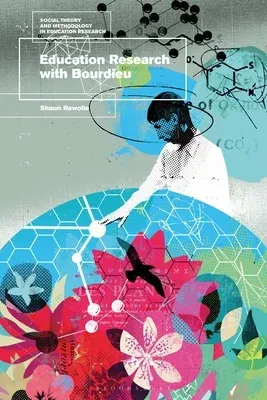Shaun Rawolle
(Author)Education Research with BourdieuHardcover, 22 August 2024

Temporarily out of stock
Free Delivery
Cash on Delivery
15 Days
Free Returns
Secure Checkout

Part of Series
Social Theory and Methodology in Education Research
Print Length
256 pages
Language
English
Publisher
Bloomsbury Academic
Date Published
22 Aug 2024
ISBN-10
135004945X
ISBN-13
9781350049451
Description
Product Details
Author:
Book Format:
Hardcover
Country of Origin:
US
Date Published:
22 August 2024
ISBN-10:
135004945X
ISBN-13:
9781350049451
Language:
English
Location:
New York
Pages:
256
Publisher: